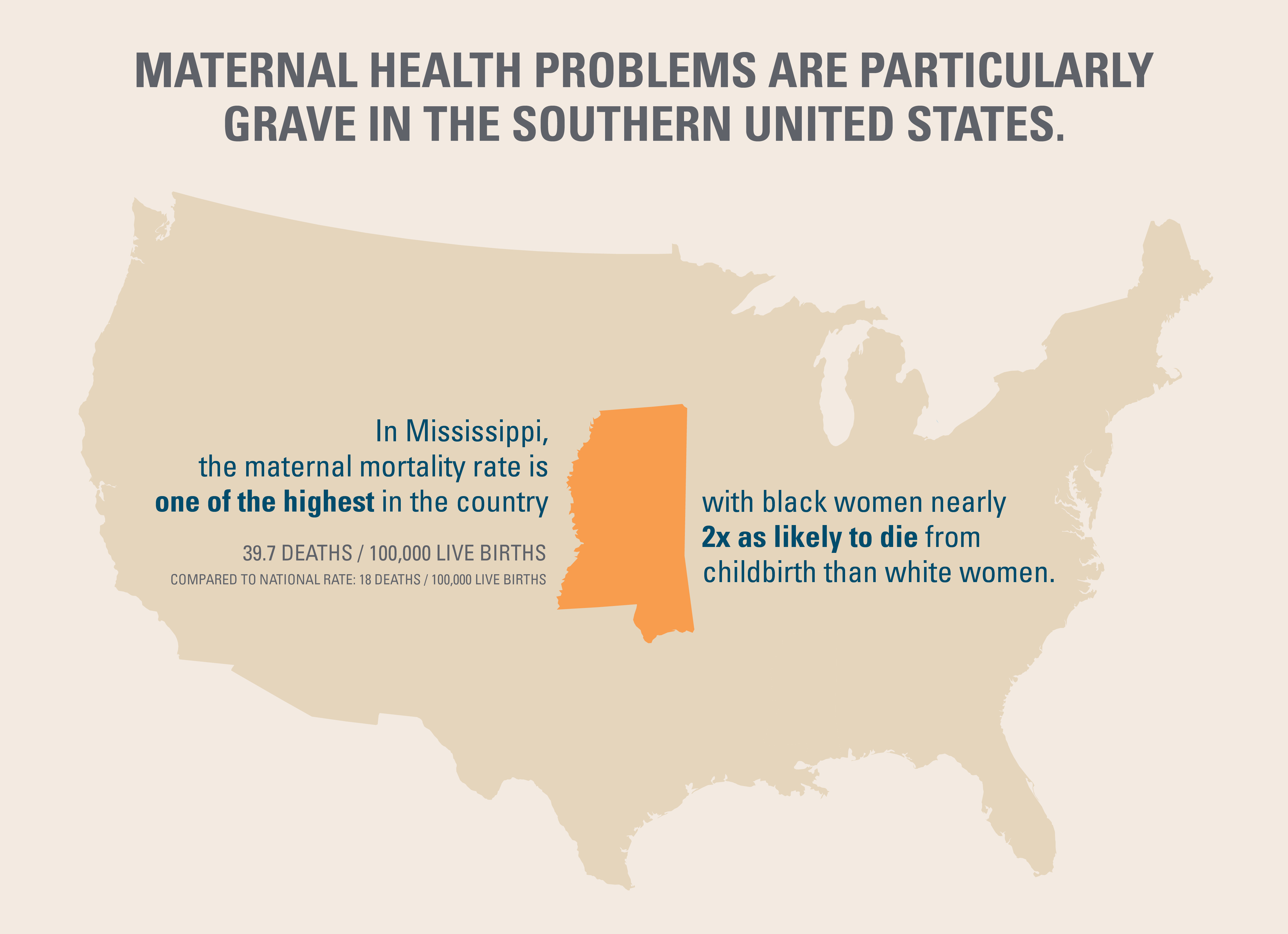Lowering chronic disease makes childbirth safer for Mississippi women

Nearly four million women give birth in the U.S. annually, most without any problems. But for roughly 700 women each year, childbirth can be deadly. And that number has been rising.

Early outcomes of a Blue Cross & Blue Shield of Mississippi (BCBS Mississippi) program for women with risky pregnancies show blood pressure and cholesterol numbers are improving through better diabetes management and progress toward healthier weights. Managing chronic diseases is critical for healthier pregnancies and births.
Training hospitals on life-saving best practices
As a healthcare organization, BCBS Mississippi understands the need for urgent, sustained action.
The company has taken two major steps to improve maternal health. One has been forging a partnership with the Mississippi Perinatal Quality Collaborative (MSPQC), which is helping hospitals implement rigorous safety practices to prevent maternal deaths. The other has been to organize best-practice training for healthcare professionals in hospitals throughout the state to improve their ability to identify, address and speak up about complications. For example, severe bleeding and high blood pressure are two of the most common complications, but they’re often undetected, misdiagnosed or ignored.
“Perhaps the greatest tragedy is that many deaths from childbirth are preventable,” says Casey Bland, a registered nurse and provider quality coordinator for BCBS Mississippi. Bland says the company’s training in established safety standards is hands-on and simulation-based. “These training sessions equip hospitals to ensure their care teams can identify dangerous situations, manage them and, ultimately, save women’s lives,” Bland says.
Addressing chronic disease through a new women-centered model of care
But the growing prevalence of chronic disease among women of child-bearing age is making it harder to avoid some of these complications. BCBS Mississippi’s Cherie Dodge says those conditions have to be addressed in order to make headway against risky births. “We know that one of the biggest causes of both maternal complications and risk for the baby at the time of birth is unresolved chronic health problems for the mother,” Dodge says. Those complications include obesity, diabetes and high blood pressure, all common health problems in the state.
That’s why BCBS Mississippi developed the Blue Primary Care and Women’s Wellness Home model. These physician practices ensure partner primary care providers and OB-GYNs help women proactively address a range of health issues. The idea is to help women develop a healthier lifestyle before they become pregnant.
BCBS Mississippi designated Indianola Family Medical, a primary care practice in Indianola, Miss., as the first Blue Primary Care and Women’s Wellness Home in the state. Indianola Family Medical physician Dr. Katherine Patterson says she has seen the value of this kind of coordination first hand. “It’s crucial for families to receive counsel and guidance before conceiving. Many mothers believe that they’re ready to carry a child, all the while struggling to cope with chronic conditions,” Patterson says. “Our goal is to help our patients achieve optimal health and be as prepared as possible before, during and after pregnancy.”
Blue Cross and Blue Shield of Mississippi is an independent licensee of the Blue Cross Blue Shield Association, an association of independent, locally operated Blue Cross and Blue Shield companies.
